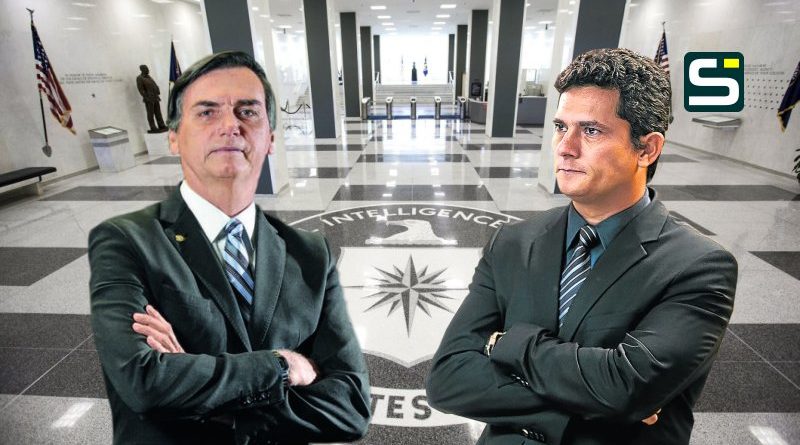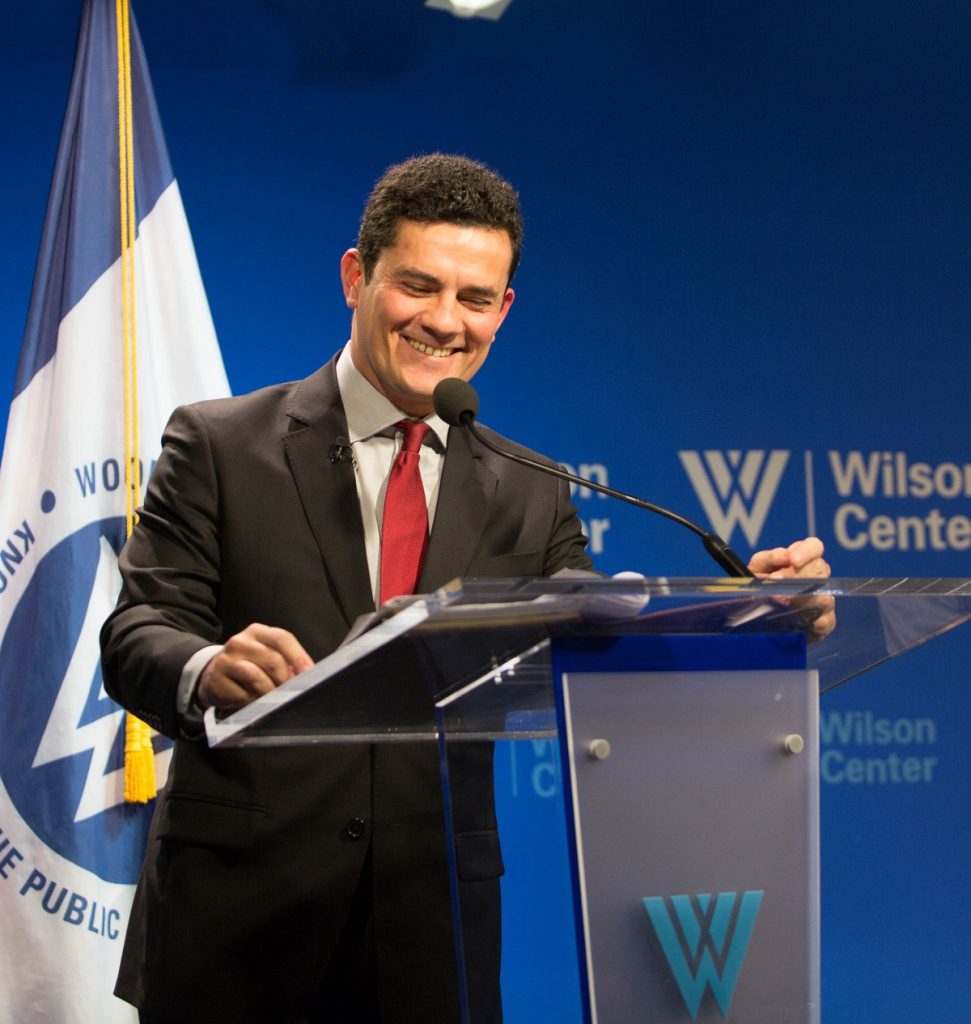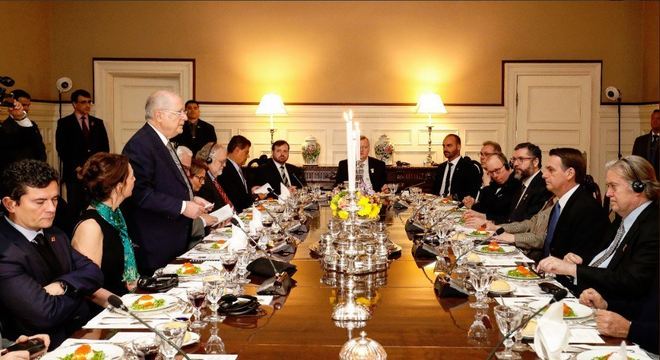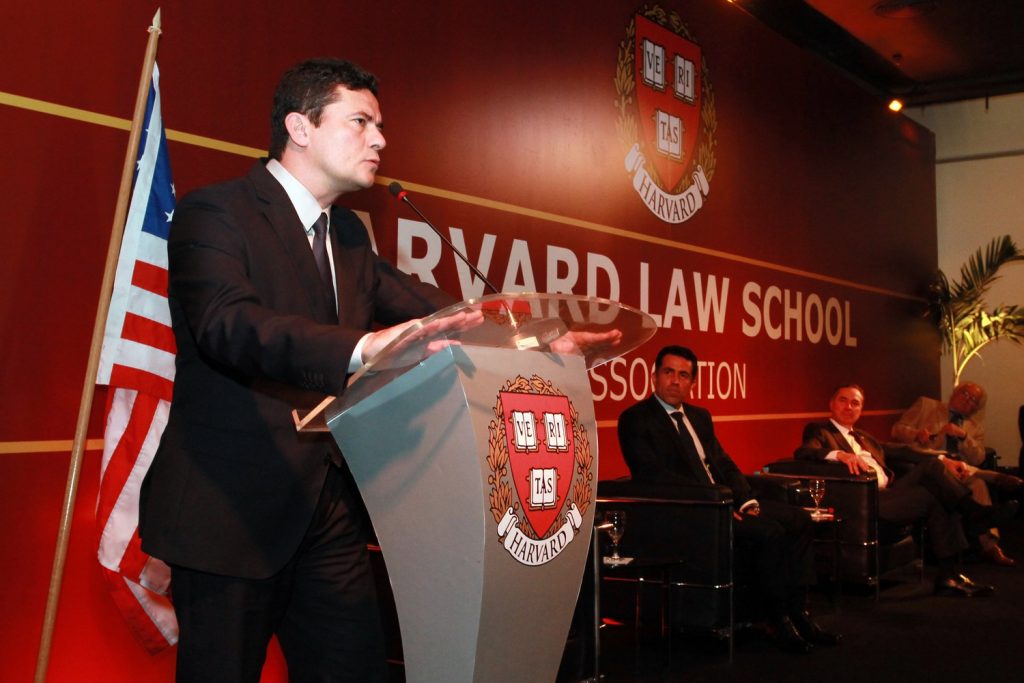The crimes that he himself reported should be enough to cause Justice Minister Sérgio Moro’s dismissal and imprisonment. His persistence in office and the explicit US government actions to protect him confirm that he is a central player in the hybrid war into which Brazil has plunged.
By Antonio Martins
From the heights of his decades of experience, journalist Jânio de Freitas called it a table-turning operation. Its apex took place on Thursday (7/25). Justice Minister Sérgio Moro tried, in an extremely brazen move, to destroy the increasingly abundant evidence that, while he was a judge, he acted with blatant partiality to interfere with the 2018 presidential election to favor the coalition of forces that would go on to give him a cabinet ministry.
In his article, de Freitas reconstructs the facts, using the Moro’s own public statements and tweets. In an obvious abuse of power, he seized the evidence from an investigation that was being secretly run. He then began calling top-level government officials to warn them that their communications were allegedly being leaked by hackers. It is very doubtful, however, that he was only referring to files from the investigation. It seems that he relied on information and violations produced in the USA. The goals of this maneuver were very clear: a) to quickly build consensus in favor of destroying evidence; and b) even more importantly, to stigmatize and banalize the revelations made by The Intercept about his criminal conduct. The plan was obvious: all new revelations would fall into the mass grave of leaks supposedly produced by criminals, where they would be nullified.

In March, Jair Bolsonaro and Sérgio Moro became the first Brazilian President and Justice Minister to visit CIA headquarters in Langley, Virginia
But Sérgio Moro’s move flopped. First because early on the morning of the 25th, journalist Glenn Greenwald revealed dialogues that he had held with the whistle-blower to Veja Magazine. It became immediately clear there were two leaks going on: The Intercept leaks, which focus on Lava Jato task force Prosecutor Deltan Dallagnol’s conversations on Telegram; and another, apparently incomparably broader, set of leaks which is attributed to small group of rural São Paulo con artists but can only be the work of much more powerful agents. The second reason that Moro’s move failed is because of what little dignity remains in the Supreme Court. On Thursday afternoon, Justice Marco Aurélio Mello announced, in an interview with journalist Monica Bergamo, that Moro not only had no authority to destroy the content of the recordings, he didn’t even have the legal right to access them.

- “Sérgio Moro is a star, and it’s no mystery why,” gushed corporate-funded neoliberal think tank AS/COA, in 2016.
The table-turning operation was immediately aborted. Worse for Moro: signs began to emerge that the spell might turn against its unskilled wizard. Over the weekend, Folha de S.Paulo newspaper recalled that, according to the constitutional principle of “broad defense” and according to the jurisprudence of the Supreme Court, defendants are entitled to obtain and invoke all supporting evidence even if it is produced illicitly. That is, not only should the records of the supposed “hundreds of breaches of confidentiality on the Internet” not have been destroyed, they should have been made available to the public. Perhaps that is what caused a new acrobatic twist. In the last few hours, the announcement of “around a thousand” leaks, so firmly asserted and boasting of only a few days ago, has begun to be relativized. Now the the Federal Police are saying it was “a few dozen,” “maybe thirty,” and they are providing a new explanation for the previously cited number of thousands. They are now saying that the hacker had 976 phone numbers in his address book (imagine how many you have) and this number did not refer to the number of hacked government officials.

- He was a supposedly impartial lower court judge, not the investigator. So why the hero’s welcome at the Wilson Center?
Nevertheless, the failure of the table-turning operation left Moro completely unaware of the new crimes he had just committed. It is no longer a question of investigating suspicions raised on his behavior. There is now concrete evidence of malfeasance that Minister Moro deliberately publicized, apparently thinking that it would successfully protect him. He now lacks all moral authority to remain Minister of Justice. It could even be, as Ciro Gomes put it, a case demanding preventative imprisonment, since Moro clearly tried to destroy evidence in a case in which he is a probable defendant. So why does Moro remain in power? It is better to avoid the loud and generic platitudes such as “The rule of law has been destroyed.” That may be true- but reminding us of this serves little purpose. We must clearly identify the forces and interests that caused and keep us in this State of Exception.

- Moro dozing off in a lavish banquet with Steve Bannon and Jair Bolsonaro in Virginia
The key seems to be in a ground-breaking article by Jose Luis Fiori and William Nozaki, which recently appeared in Outras Palavras. A few years ago, according to the professors who wrote the article, Brazil became the target of a strategic change of direction in US foreign policy aimed at conserving its threatened hegemony. This policy clearly incorporates strategies such as hybrid war, foreign intervention and promoting “constitutional” forms of coups d’état. The “war against corruption” is the main pretext of this crusade. And Sérgio Moro, who was an obscure lower court judge until a few years ago, gained prominence because he was linked to US plans since 2009, when “Project Bridges” established joint operations between certain Brazilian courts and public prosecutors and the US Department of Justice. Washington’s protection of Moro is multifaceted. Even the US Consulate recently tried to hinder international travel for the children of Glenn Greenwald, the journalist whose revelations upset Moro.

- In 2018, while Moro was busy sabotaging the presidential elections in favor of right wing extremists, he was honored at the bicentennial of Harvard Law School.
Does this mean that Moro and Bolsonaro are unbeatable? Certainly not. In another article, written two months ago, Fiori shows that Washington’s strategic turnaround failed in several countries where it was adopted, with “Operation Bolsonaro being its most significant success in the midst of a losing streak – a rare victory that can be reversed”. But the enormous effort needed to do so is laid out in a recent essay by French sociologists Pierre Dardot and Fraçois Laval. According to the authors, Moro and Bolsonaro will not fall either because of their intellectual and moral indigence, their clownish behavior or their attacks on the Constitution and laws. They represent the expression of a transformed neoliberalism which seeks to impose the logic of Capital at all costs, in all spheres of human life, and in disregard for democracy and law. This project does not retreat from its own defeats – on the contrary, it transforms them into new demands. “If austerity generates a budget deficit, an additional dose needs to be added. If competition destroys the industrial fabric or desertifies regions, it needs to be sharpened even more between companies, territories and cities. (…) If the tax cuts for the rich or corporations do not deliver the expected results, we need to cut them further. ”

- Before he had even ruled against Lula, US integral state actor Time Magazine made lower court judge Sérgio Moro one of their personalities of the year
To overcome this threat, manifest in the spectacle of horror which seems to be renewed every day in Brazil, the left will have to go beyond the strategies, programs and tactics of the nineteenth and twentieth centuries.
This article first ran in Outras Palavras, was translated by Brian Mier, and can be see in its original form here.
[qpp]

